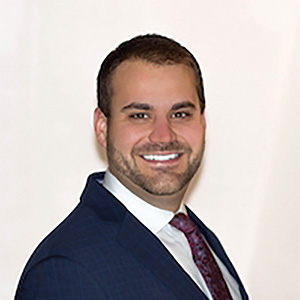This year is off to a great start! WVADA had many successes on the legislative front. We passed six out of seven of our bills, and we defeated the Right to Repair bill. The one bill that we did not get across the finish line was our franchise bill, S.B. 462 — modifying certain guidelines for motor vehicle dealers, distributors, wholesalers, and manufacturers. Our franchise bill passed out of the Senate unanimously and passed out of the House Judiciary Committee with only one “no” vote. The one “no” vote was from Delegate Evan Hansen, D-Monongalia. Delegate Hansen viewed the elimination of the right of first refusal (ROFR) language as discriminatory. Obviously, discrimination is not the intent of eliminating ROFR, and we are committed to working with several members of the House to make sure that we achieve a compromise that works in the best interest of all parties. However, the bill ultimately died on the House Calendar on the second reading.
The good news is that Deputy Speaker Rohrbach and Speaker Hanshaw have assured me that our franchise bill will run earlier next year on the House calendar to ensure passage.
WVADA Bills — Passed and Completed Legislative Action
- S.B. 151 — Levying tax on pass-through entity’s income (Completed Legislative Action — Awaiting Governor Signature)
This bill allows pass-through entities to elect to be taxed at the entity level and to provide a refundable tax credit to owners or members of an electing pass-through entity on their individual tax returns.
This would allow state income tax for partnerships and S corps to be paid at the entity level — allowing for a deduction at the federal level. Pass-through entities are such that the income “passes through” for tax purposes to the owners in relative shares of their ownership so that the income is taxed on the individuals’ personal income taxes. This bill allows entities to make an irrevocable (for the taxable year) election that all income be taxed at the entity level. A nonrefundable credit would be allowed to the individual owners for the tax on the income taxed at the entity level to avoid double taxation on those individuals’ personal income taxes. A similar credit is also available to individual owners based on their proportion of tax paid to another state at the entity level.
- S.B. 335 — Modifying the State Police rule relating to modified vehicles’ inspections (Completed Legislative Action — Awaiting Governor Signature)
This is a bill of authorization that amends a current rule regarding modified vehicle inspections. This change deletes the requirements that require a fender to cover the entire width of the tire of a modified vehicle. This idea was generated by several dealers who are unable to retail modified vehicles due to stringent inspection rules.
Now that the legislature has changed the annual vehicle inspection process from annually to every two years, beginning Jan. 1, 2024, the State Police will have to promulgate a new rule relating to the state vehicle inspection process. The State Police have agreed to work with WVADA in putting forth a rule that will not restrict a dealer’s ability to retail modified vehicles.
- S.B. 455 — Modifying certain used car restrictions (Completed Legislative Action —Awaiting Governor Signature)
This bill eliminates several restrictions placed on DUC dealers. The idea behind this bill came about due to inventory levels. Some dealers who have a D and DUC license were unable to stock both lots with inventory and often elected to move all vehicles to one lot. The current code still required both lots to be open and staffed regardless if the lot was empty.
- H.B. 2310 — Providing the DMV authority to develop an “Antique Fleet” program (Completed Legislative Action — Awaiting Governor Signature)
This bill included several different provisions than those originally introduced. This bill created an antique fleet program, changed the state inspection process from annually to every two years beginning Jan. 1, 2024, and created an exemption for national fleet vehicles from the state inspection process and personal property taxes for vehicles that are registered in WV, but do not have vehicles domiciled in WV.
- H.B. 2530 — Extending expiration of temp registration plates from 60 to 90 days (Signed by the Governor — Effective May 7, 2023)
Under the “State of Emergency Executive Order,” everyone may recall that the DMV extended temp tags from 60 to 90 days. Upon the ending of the State of Emergency, temp tags revert back to 60 days. WVADA and the DMV put forth a bill that would make temp tags good for 90 days on a permanent basis.
- H.B. 2506 — Creating a title clearinghouse (Signed by the Governor — Effective Feb. 1, 2023)
This bill allows the DMV to establish a clearinghouse for non-resident businesses to utilize an electronic registration process. Every non-resident business would be entitled to the statutory title fees, adding millions of extra revenue to the state road fund annually.
I can’t thank our members enough for their support in getting these bills passed, and I would say passing six out of seven bills and defeating the Right to Repair bill is quite successful. We will continue to work on franchise bill S.B. 462 to make sure all parties are satisfied, so it can be passed next year.
In addition, the West Virginia Auto Show at the Charleston Coliseum & Convention Center was a huge success, and once again, it’s all thanks to our members. We are looking forward to more of the exciting upcoming events, especially the multi-state convention in June. We hope to see you there!
Jared Wyrick










